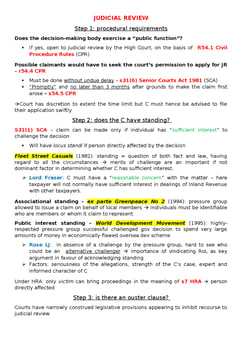Gibbon v Ogden [1824] 22 US 1
Judgement for the case Gibbon v Ogden
Table Of Contents
KEY POINTS
-
The balance of power between the federal government and the states in commerce is fundamental to the United States governance structure.
Rooted in the Constitution's division of powers, this dynamic reflects a delicate equilibrium that fosters national unity and state autonomy.
-
While the federal government possesses authority over interstate commerce through the Commerce Clause, states retain significant autonomy in regulating intrastate commerce.
This balance constantly evolves through legal interpretations, political negotiations, and societal changes, shaping the economic landscape and the relationship between federal and state entities.
FACTS
-
Aaron Ogden held an exclusive license from the state of New York to operate steamboats on the waters between New York and New Jersey.
Thomas Gibbons, a competitor, operated steamboats in the same waters under a federal coasting license granted by an act of Congress.
Gibbons argued that New York's exclusive license granted to Ogden was unconstitutional because it conflicted with the federal law regulating interstate commerce.
The case was initially heard in the New York Court of Errors, which upheld Ogden's exclusive license. Gibbons then appealed to the U.S. Supreme Court.
-
In its decision, the Supreme Court ruled in favor of Gibbons, holding that the federal law regulating interstate commerce took precedence over state laws, including New York's exclusive licensing scheme.
The Court's decision established the principle that Congress has the authority to regulate interstate commerce under the Commerce Clause of the U.S. Constitution (Article I, Section 8).
JUDGEMENT
-
In this case, the judgment favored Thomas Gibbons, (“Appellant”).
The Supreme Court ruled that the licenses granted to the steamboats Stoudinger and Bellona by the federal government, under an act of Congress, authorized them to manage the waters of the United States to carry on the coasting trade, regardless of any conflicting laws enacted by the State of New York.
The Court further declared that the laws of New York, which prohibited vessels licensed according to federal laws from traveling the state's waters using steam or fire, were repugnant to the United States Constitution and thus void.
Consequently, the decree of the New York Court of Errors affirming the injunction against Gibbons was reversed and annulled, and Aaron Ogden's bill, the Respondent's, was dismissed.
COMMENTARY
-
This case highlights a moment in U.S. legal history, showcasing the balance of power between the federal government and state authorities in matters of commerce.
The narrative begins with elucidating this fundamental relationship, emphasizing its roots in the Constitution's framework and its crucial role in maintaining national unity and state autonomy.
-
The case of Aaron Ogden and Thomas Gibbons serves as a real-world illustration of this dynamic.
Ogden, holding an exclusive license from New York to operate steamboats, clashed with Gibbons, who operated under a federal coasting license granted by Congress.
Their legal dispute centered on whether state laws could supersede federal regulations concerning interstate commerce.
The case adeptly captures the legal journey of the case, from its initial hearing in the New York Court of Errors to its ultimate resolution in the U.S. Supreme Court.
It emphasizes the role of the Supreme Court's decision, which established the supremacy of federal laws in matters of interstate commerce, as outlined in the Commerce Clause of the U.S. Constitution.
-
In dissecting the Supreme Court's ruling, the reasoning behind the judgment, emphasizes the Court's assertion that federal regulations take precedence over conflicting state laws.
By nullifying New York's exclusive licensing scheme and declaring it unconstitutional, the Court reaffirmed Congress's authority to regulate interstate commerce, thereby bolstering the federal government's role in shaping the economic landscape.
This case is significant in delineating the balance of power between federal and state entities in matters of commerce.
It underscores the enduring relevance of constitutional principles in shaping legal interpretations and governance structures, reflecting the ongoing evolution of American jurisprudence.
For Further Study on Gibbon v Ogden
Need instant answers? Our AI exam tutor is here to help.
Ask questions 🙋 Get answers 📔 It's simple 👁️👄👁️
Our AI is educated by the highest scoring students across all subjects and schools. Join hundreds of your peers today.
Get StartedSimilar Cases
Related Product Samples
These product samples contain the same concepts we cover in this case.

 Since 2010, Oxbridge Notes has been a trusted education marketplace, supplying high-quality materials from top achievers at universities like Oxford, Cambridge, LSE, Harvard, and Yale.
Since 2010, Oxbridge Notes has been a trusted education marketplace, supplying high-quality materials from top achievers at universities like Oxford, Cambridge, LSE, Harvard, and Yale.